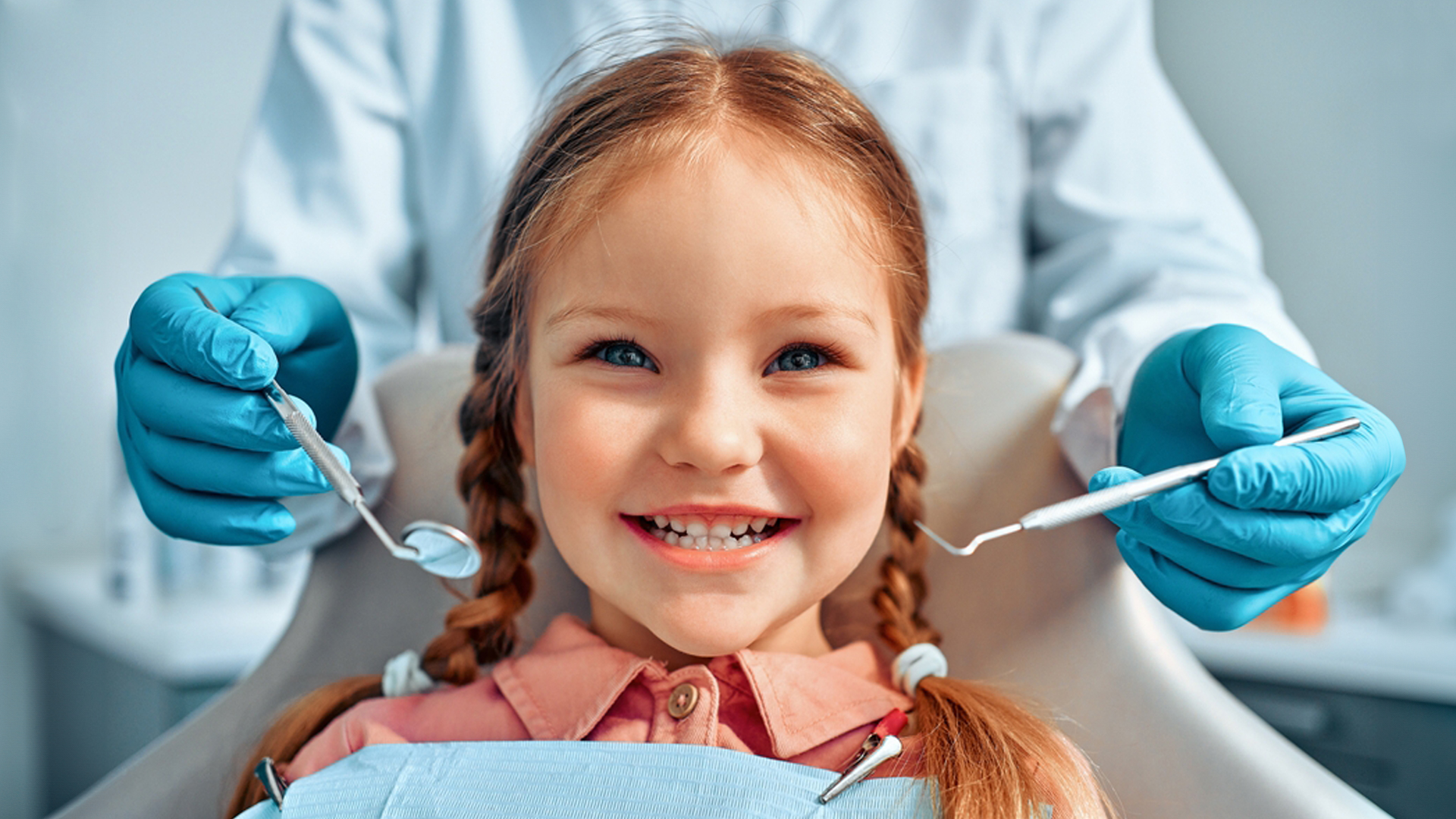
What are the most common dental diseases in children?
● Tooth decay
● Malocclusion of teeth
● Gingivitis
● Tooth erosion
● Dental trauma
Preventing children’s tooth decay
in conclusion
Sources
Children’s dental care
When should we start taking care of a child’s teeth? To answer this question, we must know some information, for example, that the child has twenty baby teeth, including eight incisors, four canines, and eight molars. These baby teeth must be kept in good health and cleanliness to avoid the occurrence of many oral and dental diseases in the future. Children must receive care of their teeth at an early age. The American Academy of Pediatric Dentistry recommends that the first dental examination be performed in the first year of a child’s life or within six months after the first tooth emerges.
This allows the dentist to evaluate the child’s tooth development, identify potential problems, and provide guidance on proper oral care. In addition, establishing an early relationship with the dentist helps familiarize the child with the dental environment and reduces anxiety associated with subsequent visits.
What are the most common dental diseases in children?
tooth decay
There is no doubt that tooth decay is one of the most common diseases among children.
This condition is caused by bacteria in the mouth that produce acids that damage tooth enamel. Poor oral hygiene, a diet high in sugar, and a lack of fluoride in the use of toothpaste are some of the risk factors.
To prevent tooth decay, it is necessary to teach children how to brush and floss their teeth, as well as limit their intake of sugary foods.
Dental malocclusion
Malocclusion is what we call poor alignment of the teeth and jaw. It can appear as crowded teeth, crooked teeth, an open bite, a crossbite or an overbite.
This condition can cause chewing problems, speech difficulties, and affect facial aesthetics. The orthodontist is the specialist responsible for evaluating and treating these problems through devices such as braces or clear braces.
Gingivitis
Gingivitis is an inflammation of the gums caused by the buildup of bacterial plaque around the teeth.
Your gums may appear red, swollen, and bleed while brushing. To prevent this disease, good oral hygiene is essential, including regular brushing and flossing, as well as regular visits to the dentist for professional cleanings.
Pediatric gingivitis is a more advanced form of gum disease that affects children. It is characterized by gingivitis, bone loss, and damage to the tissues supporting the teeth. It might cause premature tooth loss if left untreated.
Treatment includes removing plaque and tartar, and in more severe cases, surgical procedures may be necessary.
Tooth erosion
One of the most common dental diseases in children and adolescents is tooth erosion. It consists of erosion of tooth enamel due to prolonged exposure to acids – acidic foods and drinks, acid reflux, etc.
To prevent tooth erosion, it is important to limit your intake of acidic foods and drinks, rinse your mouth with water after consuming them, and brush your teeth for a reasonable period after consuming them.
Dental trauma
Dental injuries in children and teens can occur due to sports activities, games, or accidents. They may include tooth fractures, dislocations, or extractions (complete removal of the tooth).
Preventing children’s tooth decay
One of the most typical childhood illnesses is tooth decay. More than 4 out of every 10 children suffer from cavities in their baby teeth.
If your child eats and drinks a lot of foods and drinks that contain sugar, he or she is more at risk of tooth decay. However, good habits, such as brushing your teeth and visiting your dentist, can prevent tooth decay.
Teething begins around 6 months of age for most babies. With it, the child must begin to get used to good dental hygiene habits so that your child has a healthy smile!
- Clean your baby’s gums with a clean cloth twice daily before his first teeth appear
- Start brushing your child’s teeth twice a day as soon as the first tooth appears.
- When babies are 6 months old, they can start transitioning from using a bottle to a sippy cup. This helps prevent fluid accumulation around the teeth. By his first birthday, your baby will have the motor skills and coordination needed to use a cup on his own.
- For the first five years of life, children should drink only milk and water.
- Teach him to brush his teeth twice a day
- Use fluoride-rich toothpaste
- Use dental floss daily to remove plaque accumulated between the child’s teeth and under the gums, which prevents them from hardening and turning into tartar, as once they form, they can only be removed with professional cleaning. Recommended from four years of age. At the age of eight, he will be able to use it on his own
- Offer him healthy foods and drinks that contain little sugar
Limit sugary foods and soft drinks because excessive consumption of sugary foods and soft drinks can contribute to tooth decay. Encourage a balanced diet and limit foods and drinks that can harm teeth. Promote healthy alternatives, such as fresh fruits, crunchy vegetables, and water. - Take him to the dentist regularly for checkups
Conclusion
Children’s dental care is essential to ensure your children’s oral health. By establishing healthy habits from an early age, you can lay the foundation for a bright smile and good dental health throughout your life. Remember that dental care should be a positive and enjoyable experience for your children, so it is important to make dental care fun and engaging for them.
See also: What is dental calculus cleaning?
Follow us on Instagram The Gentle Dentist
sources
- https://www.nhs.uk/live-well/healthy-teeth-and-gums/taking-care-of-childrens-teeth/
- https://health.clevelandclinic.org/caring-for-childrens-teeth
- https://www.healthdirect.gov.au/dental-care-for-babies-and-children
- Myth or Fact? Everything You Need to Know About Teeth Whitening at Home
- Dental Implants: The Perfect Solution for Tooth Loss and Restoring Self-Confidence
- Secrets of a Healthy Mouth: Daily Habits That Protect Your Teeth from Cavities
- Thumb sucking in children and its effect on dental health.
- Benefits of regular teeth cleaning

